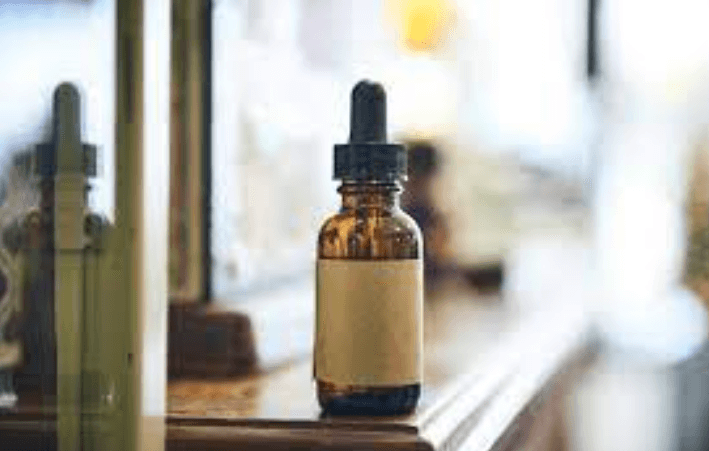Unlocking the Secrets of Hyaluronic Acid: A Comprehensive Guide

Hyaluronic acid has become a buzzword in the beauty and health industries, and for good reason. This naturally occurring substance has been hailed as a miracle worker for skin hydration, joint health, and more. But what exactly is hyaluronic acid good for?
In this comprehensive guide, we'll dive deep into the world of hyaluronic acid, exploring its myriad benefits and uses.
Key Takeaways:
- Hyaluronic acid is a key molecule in skin moisture and tissue regeneration.
- It offers benefits ranging from skin hydration to joint pain relief.
- Various forms of hyaluronic acid, including serums, creams, and supplements, cater to different needs.
What is Hyaluronic Acid?
Hyaluronic acid is a naturally occurring substance found in the human body, particularly within the skin, connective tissue, and eyes. It plays a crucial role in retaining moisture and maintaining the elasticity of the skin. As we age, the levels of skin hyaluronic acid diminish, leading to the appearance of fine lines and wrinkles.
The Role of Hyaluronic Acid in Skin Hydration
One of the primary benefits of hyaluronic acid is its ability to attract and retain moisture in the skin cells. This not only helps in keeping the skin hydrated but also contributes to its plumpness and suppleness.
Applying hyaluronic acid in the form of a serum or cream can significantly improve skin moisture levels, leading to a more youthful complexion.
Hyaluronic Acid for Anti-Aging
Hyaluronic acid helps reduce the visibility of fine lines and wrinkles by filling in the space between skin cells, which lose moisture as we age. Regular use of hyaluronic acid products can lead to smoother, firmer facial skin, slowing down the signs of facial skin aging.

Topical Hyaluronic Acid Products
Topical treatments containing hyaluronic acid, such as serums and creams, are widely available and popular for their skin hydrating properties. These products are designed to be applied directly to the skin, where they can help to improve skin firmness and reduce wrinkles.
Oral Hyaluronic Acid Supplements
Taking hyaluronic acid supplements orally is another way to reap the benefits of this substance. Oral hyaluronan relieves wrinkles from the inside out, promoting skin health and potentially aiding in wound healing and tissue regeneration.
Hyaluronic Acid Injections for Joint Health
Hyaluronic acid injections are often used to relieve joint pain, particularly in patients with osteoarthritis. These injections can help to lubricate the joints, reducing pain and improving mobility.
The Science Behind Hyaluronic Acid and Wound Healing
Studies have shown that hyaluronic acid can accelerate wound healing. It does so by regulating inflammation levels and signaling the body to build more blood vessels in the damaged area, which is essential for tissue repair.
Hyaluronic Acid Eye Drops for Dry Eyes
Hyaluronic acid eye drops are a soothing solution for those suffering from dry eye symptoms. They work by retaining moisture and providing mucosal protection combined with lubrication to the eye surface.
Hyaluronic Acid's Effectiveness in Clinical Trials
When pondering over what is hyaluronic acid good for, it's essential to consider the evidence from clinical trials. A randomized clinical trial, the gold standard in research, provides the most reliable data on the efficacy of treatments.
For instance, studies have shown that hyaluronic acid serum can significantly improve skin hydration and elasticity, leading to a more youthful skin appearance. These trials often use a placebo-controlled study design to ensure that the results are due to the product itself and not other external factors.

Moreover, hyaluronic acid works not just superficially but also at deeper levels of human skin. Clinical trials have demonstrated that regular use of hyaluronic acid cream can lead to sustained hydration and wrinkle reduction.
This is particularly evident in anti-wrinkle creams that contain hyaluronic acid as a key ingredient. The health benefits observed in these studies reinforce the importance of incorporating hyaluronic acid products into skincare routines for those seeking hydrated skin and anti-aging effects.
Hyaluronic Acid in Placebo-Controlled Studies
Hyaluronic acid has been the subject of numerous placebo-controlled studies, particularly in the realm of dermatology and joint health. These studies are critical in validating the efficacy of hyaluronic acid treatments.
For instance, in the context of skin care, research comparing anti wrinkle creams containing hyaluronic acid to placebo creams has shown a significant improvement in skin texture and elasticity. This scientific approach helps to substantiate the claims made by skincare brands and gives consumers confidence in the products they choose.
In the field of orthopedics, similar studies have been conducted to assess the effectiveness of hyaluronic acid injections in patients with knee pain. The results often indicate that those receiving hyaluronic acid experience a reduction in pain and improved joint function compared to the placebo group.
These findings are crucial for individuals seeking non-surgical options for managing their joint discomfort and underscore the potential of hyaluronic acid as a therapeutic agent.
Hyaluronic Acid's Potential in Osteoarthritis Management
Hyaluronic acid has been a topic of interest in the management of osteoarthritis, a condition characterized by the degeneration of joint cartilage.
Studies have shown that hyaluronic acid injections can mimic the fluid naturally found in our joints, potentially providing cushioning and lubrication. This treatment, known as viscosupplementation, has been the subject of numerous clinical trials, including placebo-controlled studies, to assess its efficacy in reducing joint pain and improving mobility for those with osteoarthritis.
In a placebo-controlled study, patients receiving hyaluronic acid injections were often compared to those receiving saline injections. The results have been mixed, with some studies indicating significant benefits in pain relief and joint function, while others suggest only a modest improvement or none at all.
Despite the varying outcomes, hyaluronic acid continues to be a popular treatment option, with ongoing research aimed at optimizing its therapeutic potential for individuals suffering from osteoarthritis.
Hyaluronic Acid's Emerging Benefits in Neurological Health
Recent studies have begun to explore the potential of hyaluronic acid in the realm of neurological health, particularly in its ability to support brain tissue hydration and elasticity.
The brain, much like other organs, relies on a well-balanced environment to function optimally, and hyaluronic acid may play a crucial role in maintaining this balance. Researchers are intrigued by its capacity to modulate the extracellular matrix, potentially influencing neuroplasticity and protecting against age-related cognitive decline.
In a placebo-controlled study, the effects of hyaluronic acid supplementation on cognitive function were assessed, offering promising preliminary results. While more extensive research is needed to draw definitive conclusions, the study suggests that hyaluronic acid could contribute to improved brain health.
This opens up a fascinating new avenue for the application of hyaluronic acid, beyond its well-known benefits for skin and joint health, and underscores the importance of continued research in this area.
Placebo-Controlled Study Insights on Hyaluronic Acid and Muscle Soreness
The fitness and sports medicine communities are always on the lookout for effective remedies to reduce muscle soreness and accelerate recovery. Hyaluronic acid, known for its hydrating properties, is now being investigated for its potential benefits in muscle recovery post-exercise.
Anecdotal evidence suggests that its ability to retain water might help in maintaining muscle hydration, which is crucial for repair and recovery processes.
A recent placebo-controlled study aimed to evaluate the efficacy of hyaluronic acid supplements in reducing muscle soreness after strenuous exercise. Participants reported a subjective decrease in soreness levels, indicating that hyaluronic acid might have a role in mitigating the inflammatory response associated with muscle damage.
While these findings are encouraging, further research is necessary to fully understand the mechanisms by which hyaluronic acid could aid in muscle recovery and to establish standardized dosing guidelines for athletes and fitness enthusiasts.
Exploring Hyaluronic Acid's Role in Eye Health
The eyes are another area where hyaluronic acid has shown promise, particularly in the treatment of conditions like dry eye syndrome. This condition affects millions worldwide and can lead to discomfort, redness, and even impaired vision.
Hyaluronic acid eye drops serve as a lubricant, offering relief by mimicking the natural composition of tears. Their viscoelastic properties help maintain a stable tear film, providing both immediate and lasting comfort for dry eye sufferers.
Recent advancements have led to the development of new formulations that enhance the staying power of hyaluronic acid on the ocular surface, thus extending its soothing effects.
These innovative products often undergo rigorous testing, including placebo-controlled studies, to validate their effectiveness and safety. By improving the quality of life for those with dry eye syndrome, hyaluronic acid eye drops exemplify the versatility and therapeutic value of this remarkable molecule in eye health management.
Hyaluronic Acid's Role in Managing Dry Eye
The versatility of hyaluronic acid extends to its use in ophthalmology, where it has been shown to relieve dry eye symptoms effectively. Eye drops containing hyaluronic acid can mimic the eye's natural tears, providing not only lubrication but also promoting healing of the ocular surface.
This is particularly beneficial for individuals who spend long hours in front of screens or in dry environments, offering a soothing solution to the discomfort of dry eyes.
Innovations in Hyaluronic Acid Product Formulations
The beauty industry is constantly evolving, and hyaluronic acid product formulations are at the forefront of this innovation.
Hyaluronic acid solution has been adapted into various topical products, including creams, serums, and even facial fillers. Each product is designed to target specific concerns, such as reducing joint pain, relieving dry eye symptoms, or providing wrinkle reduction.
For example, facial fillers leverage the volumizing effect of hyaluronic acid to smooth out skin and diminish the appearance of deep-set lines.
In addition to cosmetic applications, new formulations are being developed to address medical conditions. For instance, hyaluronic acid has been used in topical treatment for skin wounds, showing promising results in accelerating healing.
Hyaluronic Acid and Acid Reflux
Interestingly, hyaluronic acid may also play a role in managing acid reflux. Some research suggests that a combination of hyaluronic acid and chondroitin sulfate can help in the treatment of non-erosive reflux disease by providing mucosal protection.
Hyaluronic Acid Fillers for Cosmetic Enhancement
Hyaluronic acid fillers are a popular choice for non-surgical facial enhancement. These fillers can add volume to the skin, smoothing out wrinkles and restoring a youthful appearance.
Hyaluronic Acid for Vaginal Dryness
Vaginal dryness can be an uncomfortable condition, often treated with vaginal estrogen. However, hyaluronic acid has emerged as a potential alternative, providing relief without hormones.
Hyaluronic Acid and Bladder Pain
Intravesical hyaluronic acid has been studied for its effectiveness in treating bladder pain, particularly in conditions like interstitial cystitis. A placebo-controlled study has shown promising results in reducing symptoms.
The Impact of Diet on Hyaluronic Acid Levels
Dietary supplements containing hyaluronic acid can contribute to overall levels in the body. Foods rich in amino acids and certain minerals can also support the body's natural production of hyaluronic acid.
Combating Dehydrated Skin with Hyaluronic Acid
Dehydrated skin can benefit greatly from products containing hyaluronic acid. By applying hyaluronic acid topically, the skin can better retain moisture, leading to a more hydrated and radiant complexion.
Hyaluronic Acid for Sensitive Skin
Those with sensitive skin often struggle to find suitable skincare products. Hyaluronic acid is generally considered gentle and can be a great addition to the skincare routine of those with sensitive skin.
The Safety of Hyaluronic Acid
Is hyaluronic acid safe for everyone? Generally, hyaluronic acid is well-tolerated, with minimal adverse effects. However, those with allergic reactions to skincare products should proceed with caution and consult a healthcare provider.
Summary
Hyaluronic acid is a versatile and beneficial substance that offers a wide range of health and beauty advantages.
From enhancing skin hydration and reducing the signs of aging to relieving joint pain and aiding in wound healing, hyaluronic acid is a key molecule in maintaining a youthful and healthy body.
Whether you choose topical hyaluronic acid, injections, or oral supplements, this natural substance can be a valuable addition to your health and beauty regimen.
FAQ Section
Q: Can taking hyaluronic acid supplements improve skin health?
Yes, taking hyaluronic acid supplements can improve skin health by promoting skin hydration and elasticity from within, which may help in reducing wrinkles and improving skin firmness.
Q: Are there any side effects to using hyaluronic acid products?
Hyaluronic acid is generally safe and well-tolerated. However, some individuals may experience allergic reactions or irritation, especially if they have sensitive skin. It's always best to do a patch test before using a new product extensively.
Q: How often should I use hyaluronic acid on my skin?
The frequency of use can depend on the specific product and your skin's needs. Generally, hyaluronic acid serums or creams can be used once or twice daily. Always follow the instructions provided with the product or consult with a dermatologist for personalized advice.





